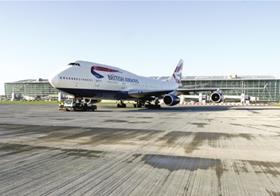
Consumers in the UK need to receive accurate information about airfreighted fresh produce and the environment, given the fact that CO2 emissions involved can often be lower than shipping products from nearby European countries.
This was just one of the key recommendations to the UK government from a new report from the British House of Commons’ International Development Committee, dubbed ‘Sustainable Development in a Changing Climate’.
Committee chairman Malcolm Bruce MP said there was a danger that steps taken by consumers to reduce their carbon emissions may lead them to avoid buying produce from developing countries in the belief that airfreighted food have a higher carbon footprint.
He claimed: “We saw for ourselves the sophisticated and efficient techniques used to grow flowers in Kenya – the CO2 emissions from Kenyan flowers flown to the UK are nearly six times lower than those from Dutch flowers grown in heated greenhouses.
“Consumers need accurate information about the way products have been grown as well as transported so that they can make informed choices.”
Around 60 per cent of fruit and vegetables are imported into the UK, providing consumers with produce outside of the UK season as well as varieties which simply cannot be grown in the country.
Nigel Jenney, chief executive of the Fresh Produce Consortium said: “We need to tackle the impact of climate change, but it’s important that the Committee has recognised the need to keep airfreight in perspective and to consider the carbon footprint of the whole supply chain.
“Total air freighted imports of fruit and vegetables account for a mere 0.2 per cent of total UK greenhouse gas emissions.”